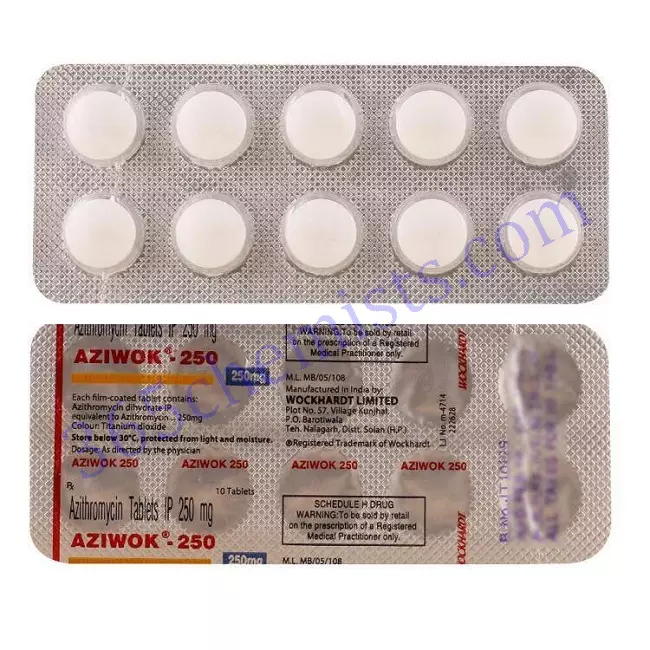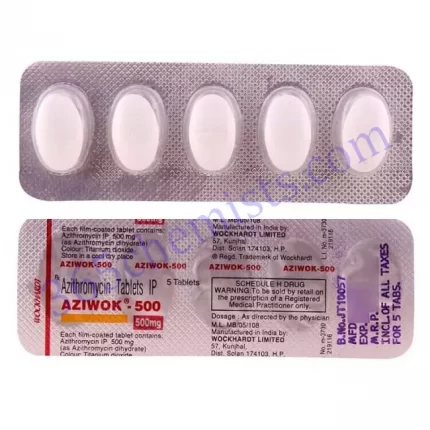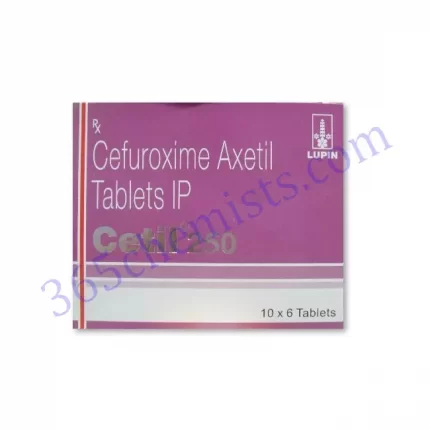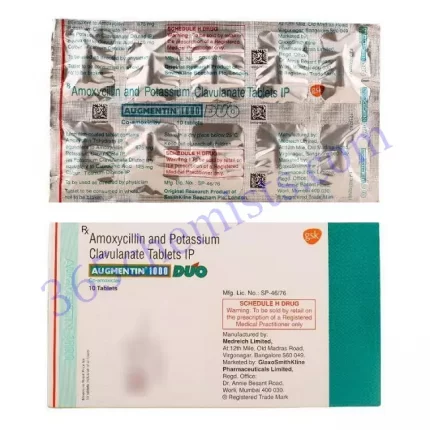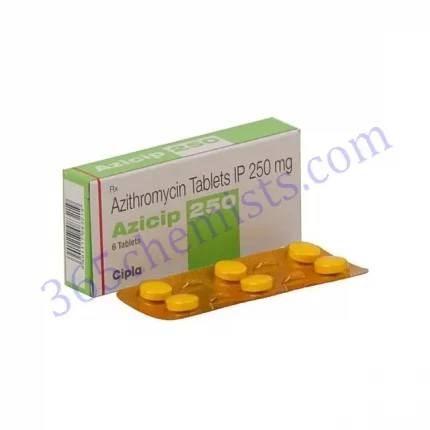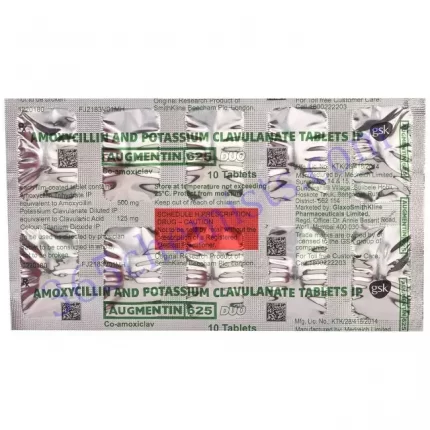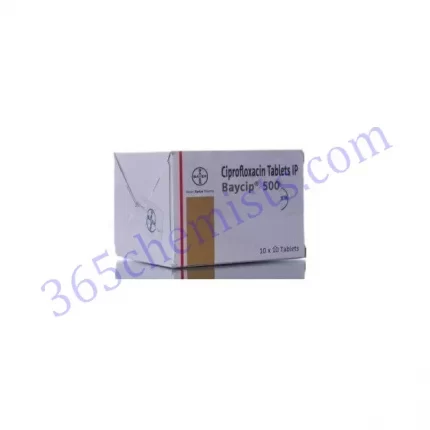Aziwok 250mg Tablet (Azithromycin)
The Aziwok 250mg Tablet is an antibiotic that effectively treats a wide variety of bacterial infections. Its active ingredient is azithromycin, which makes it a popular choice among patients. Because of the medication’s well-established track record of both effectiveness and safety in the treatment of bacterial infections, medical practitioners have come to regard it as a reliable option.
Understanding Azithromycin
Azithromycin, which is the primary ingredient in Aziwok 250mg Tablet, is an antibiotic with a wide spectrum of activity that blocks the production of bacterial proteins. It does this by binding to the 50S ribosomal subunit of the bacterial ribosome, which stops the production of proteins that are essential for the growth and replication of bacteria. It has been demonstrated that azithromycin is effective against infections of the respiratory tract, infections of the skin and soft tissues, sexually transmitted diseases, and other types of infections caused by bacteria that are susceptible to the drug.
Indications and Usage
It is common practise to recommend Aziwok 250mg Tablet for the treatment of infections of the respiratory tract, such as acute bacterial exacerbations of chronic bronchitis, community-acquired pneumonia, and acute bacterial sinusitis. Infections of the skin and soft tissues, such as cellulitis, impetigo, and erysipelas, can also be treated successfully with this medication. Additionally, the Aziwok 250mg Tablet is indicated for the treatment of certain sexually transmitted infections, such as uncomplicated urethritis and cervicitis. These conditions can be treated with this medication.
Dosage and Administration
It is possible for the recommended dosage of Aziwok 250mg Tablet to change depending not only on the nature and extent of the infection, but also on the age of the patient and their general state of health. It is essential to take the medication exactly as directed by the doctor or other healthcare professional, including adhering to the dosage that was prescribed and finishing the entire course of treatment. The Aziwok 250mg Tablet should be taken orally once daily, either with food or on an empty stomach.
Related Product
Aziwok 100 Liquid
Aziwok 200 suspension
Aziwok 250 Tablet
Aziwok 500 Tablet
Aziwok 600 Tablet
Contraindications and Precautions
Even though the Aziwok 250mg Tablet is generally well tolerated, there are a few things that you should watch out for and some precautions you should take. People who have previously shown an extreme sensitivity to azithromycin or any other macrolide antibiotic should not take this medication. It is essential to inform the prescribing healthcare professional about any pre-existing medical conditions, such as liver or kidney disease, heart rhythm disorders, myasthenia gravis, or a history of prolonged QT interval, as these factors may affect the suitability and dosage of Aziwok 250mg Tablet. These conditions include: liver disease; kidney disease; heart rhythm disorders; myasthenia gravis; and a history of prolonged QT interval.
Side Effects
Aziwok 250mg Tablet, like any other medication, has the potential to cause adverse effects in some people. The symptoms of nausea, vomiting, diarrhoea, and abdominal pain are the ones that patients report experiencing as their primary gastrointestinal side effects the most frequently. In most cases, these adverse effects are mild, and they go away on their own. On the other hand, it is prudent to seek medical attention if they continue or if they become severe. Allergic reactions, liver dysfunction, and a prolonged QT interval are examples of the rare but serious adverse effects that can be caused by taking an Aziwok 250mg Tablet. However, these events only happen very rarely.
Drug Interactions
There is a possibility that the Aziwok 250mg Tablet will interact negatively with one or more of your medications, which could result in decreased effectiveness or even harmful side effects. It is extremely important for the patient to disclose to the healthcare professional who is writing the prescription any and all other medications, including over-the-counter drugs, supplements, and herbal remedies, that they are currently taking. A number of pharmaceuticals, including warfarin, digoxin, antacids containing aluminium or magnesium, and specific antiepileptic drugs, are known to interact negatively with the antibiotic azithromycin. In order to avoid any adverse drug interactions, it is essential to perform careful monitoring and, if necessary, make dose adjustments.
Conclusion
Antibiotic medication like the Aziwok 250mg Tablet, which uses the active ingredient azithromycin to treat a wide variety of bacterial infections, is known for its high level of efficacy. Because of its efficacy across a wide range of symptoms as well as its exemplary safety record, the Aziwok 250mg Tablet is a reliable option for medical professionals. It is essential to adhere to the dosage that has been prescribed, to be aware of any contraindications or precautions, to keep an eye out for any possible adverse effects, and to inform the healthcare professional about any other medications that are being taken at the same time. Tablets of Aziwok 250mg offer a dependable choice for the treatment of bacterial infections.

